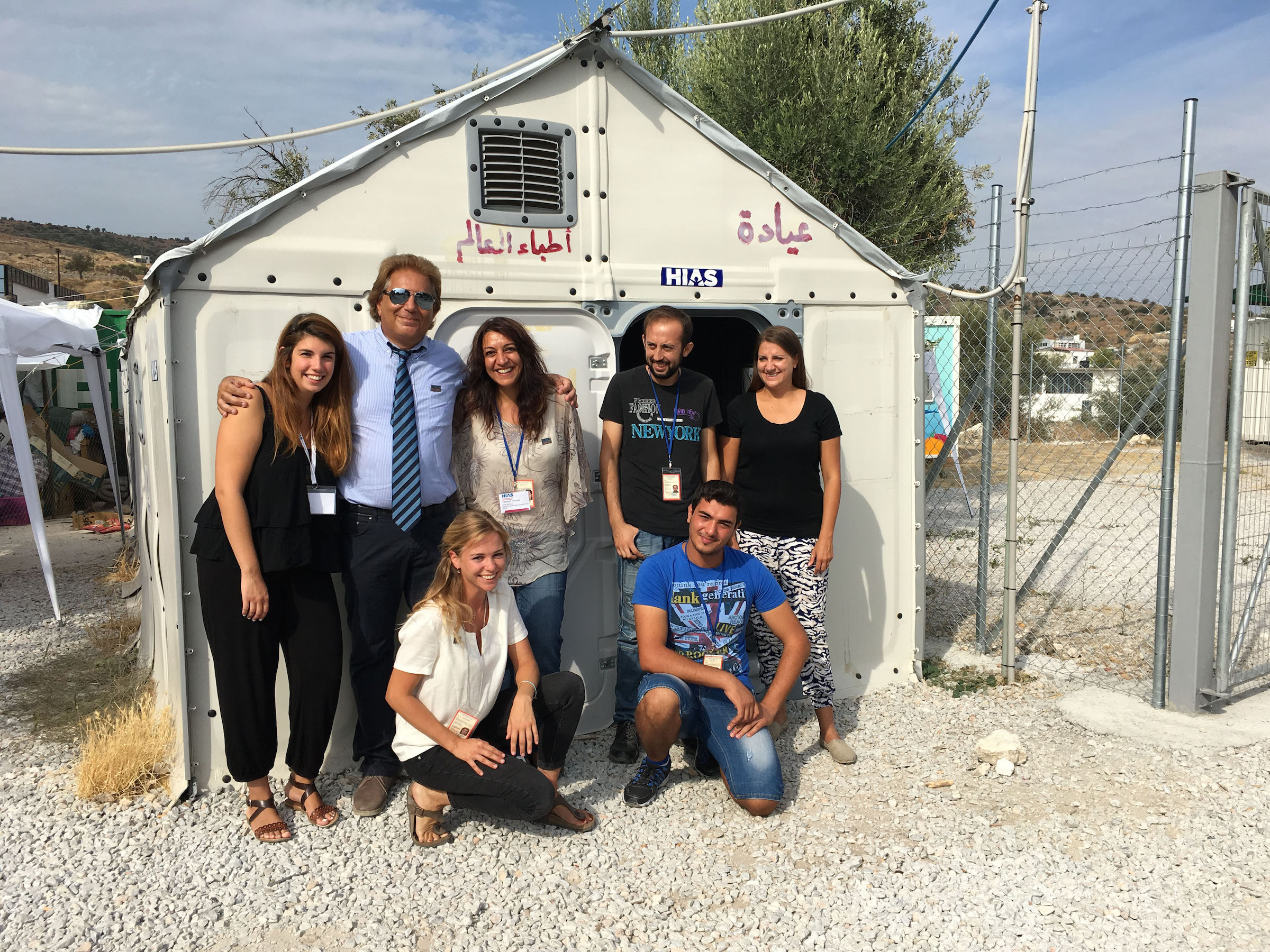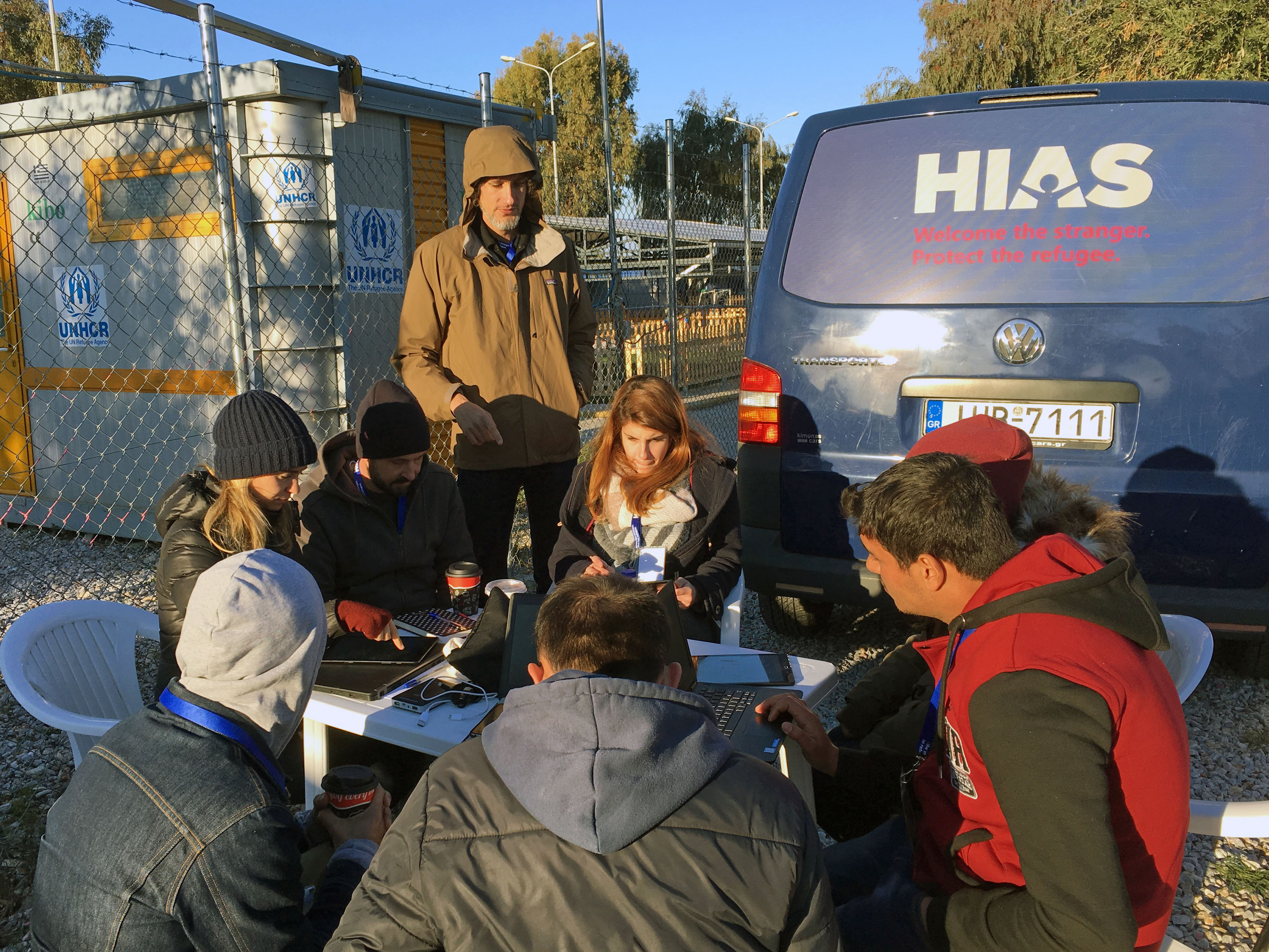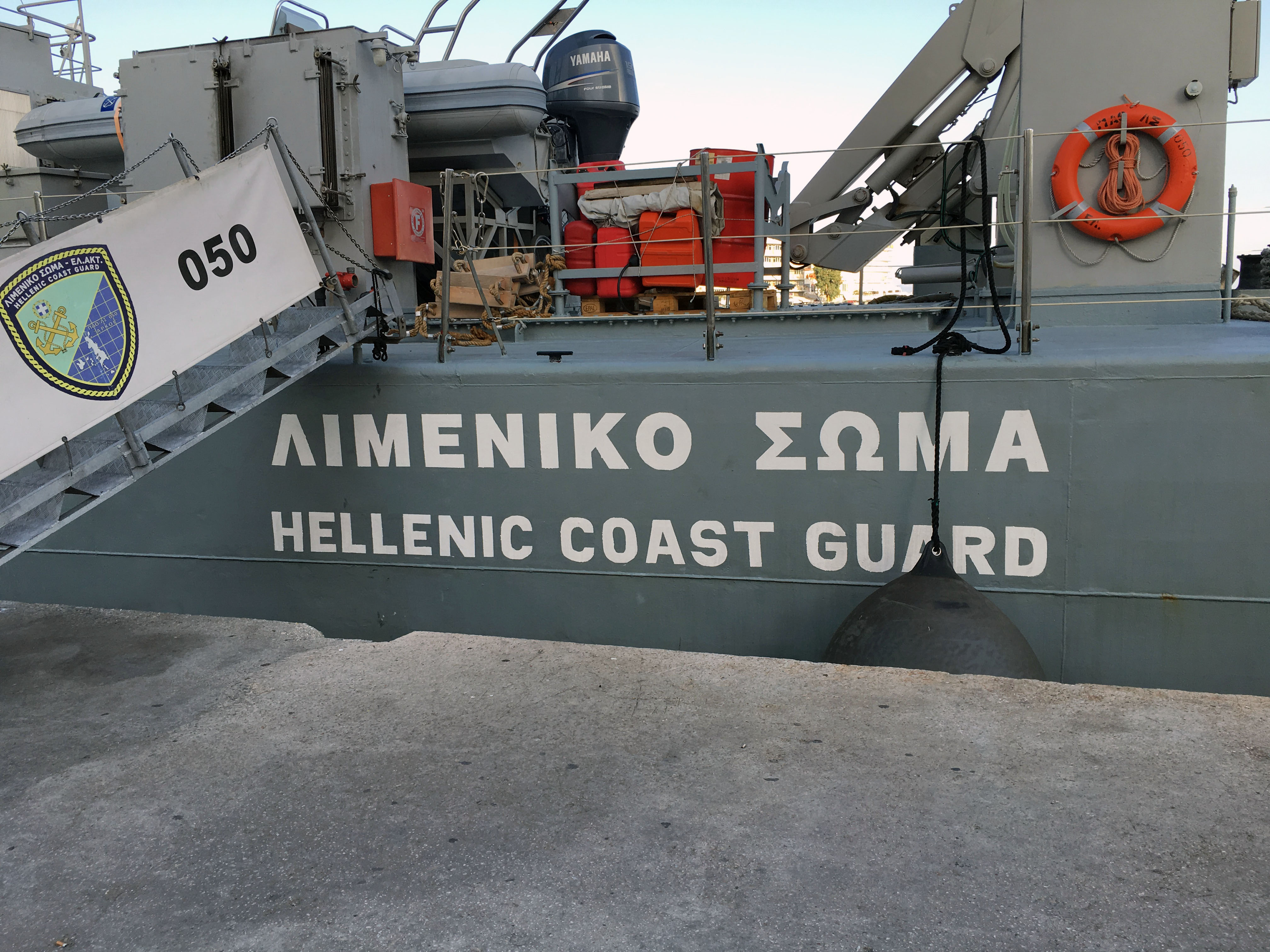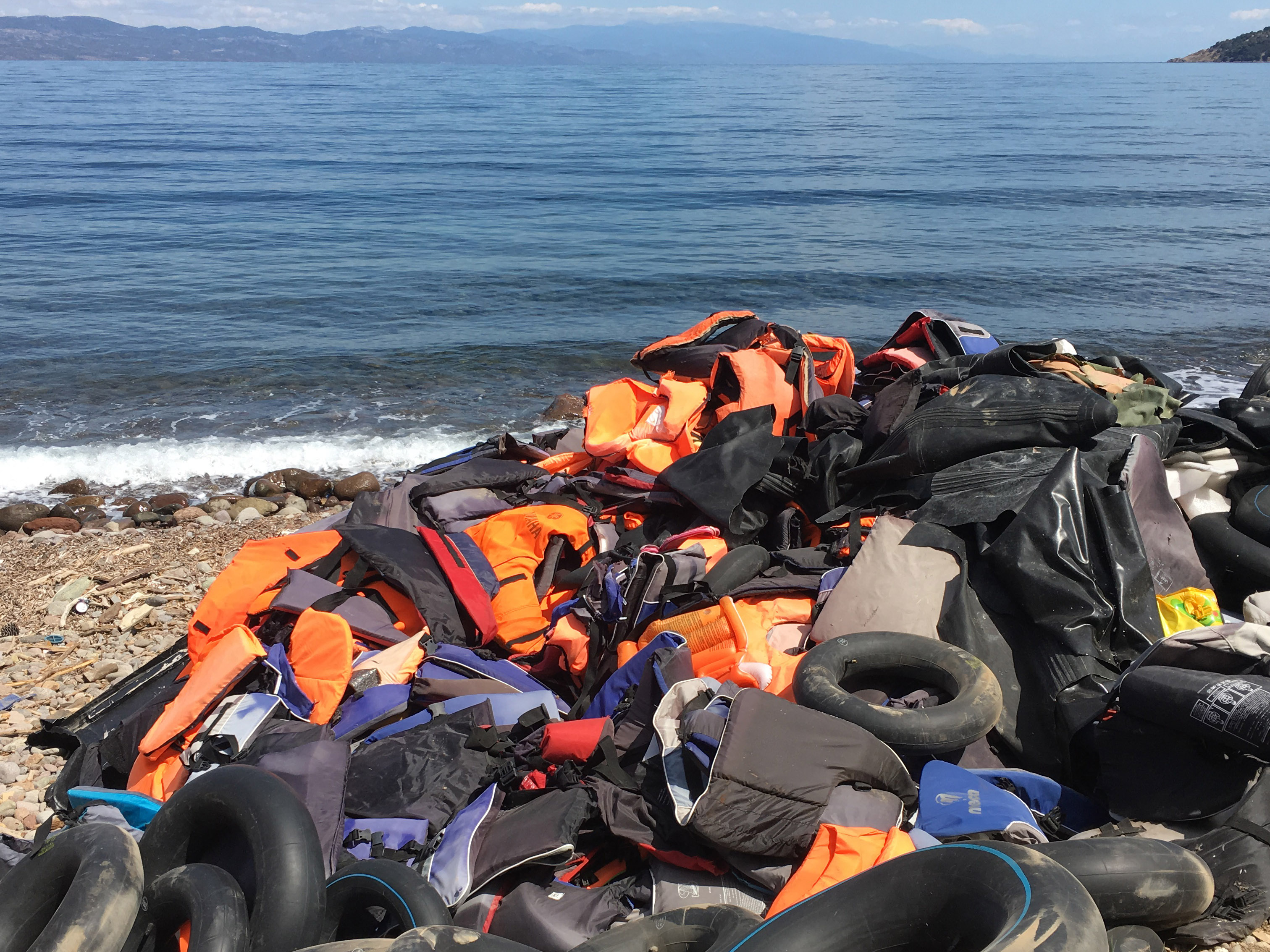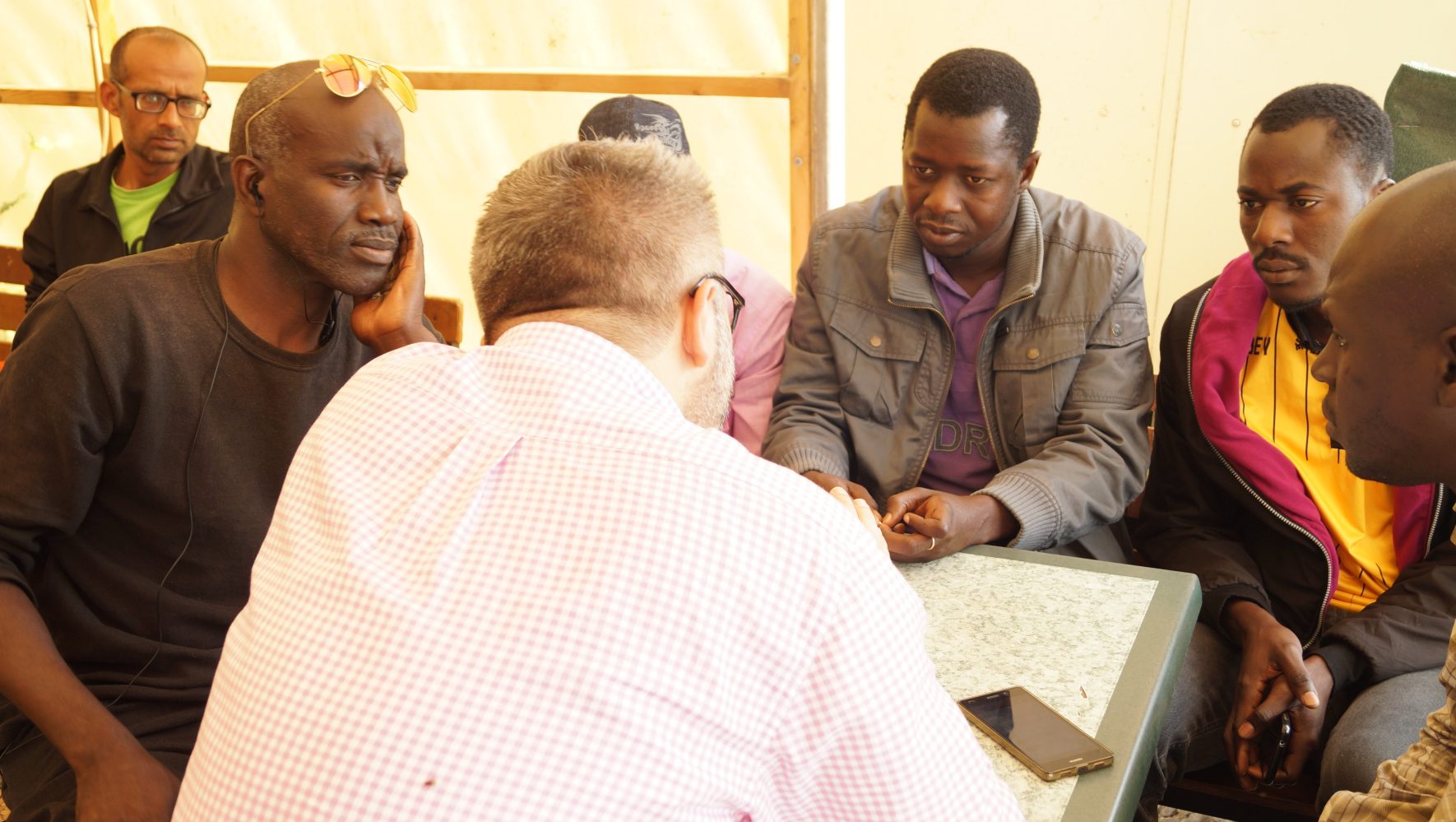Refugees in Greece Need Legal Aid. Here’s What HIAS is Doing to Help.
Jan 12, 2017
To many, the Greek Islands conjure images of white sandy beaches and turquoise blue water. But for thousands of traumatized and desperate asylum-seekers, it is the place where their journey to safety and freedom came to an abrupt halt.
Over the past two years, as some nations closed their borders, many who fled war and persecution in other parts of the world wound up stuck in Greek reception centers and group housing, waiting for interviews and uncertain about their futures. Some have reported waiting more than six months to be registered by the Greek Asylum Service.
On July 1, 2016, on the Greek island of Lesvos, HIAS launched its newest international office in order to provide assistance to refugees and asylum-seekers facing an unfamiliar and daunting legal bureaucracy.
“For those who survive the harrowing journey, landing on Lesvos is only the beginning,” said Rachel Levitan, associate vice president for global programs at HIAS. “There are so many questions facing new arrivals, and a complicated legal process to navigate. HIAS Greece was established to meet the urgent need people have for legal assistance and guidance on the island.”
“People have lots of questions and very few places to turn for answers. We are a crucial resource for them during a difficult time,” Levitan explained.
Since the beginning of 2015, more than a million refugees have attempted the dangerous journey between Turkey and Greece. A majority arrived on the Greek island of Lesvos, considered the “gateway to Europe” for refugees and asylum-seekers.
Leila*, a Syrian woman from Homs, is one such refugee. “I had to flee my hometown because the government forces and rebel soldiers were often clashing, making it dangerous to go outside. I couldn’t even buy milk for my baby,” she explained. “After my younger brother was hit by sniper fire on his way to school, I thought, this is enough, I can’t take it anymore.”
Like so many other refugees, Leila, her husband and their one-year old daughter made the decision to leave their home country, hoping for a safer future. They paid a smuggler to get them from Syria to Turkey and then from Turkey to Greece.
“My sister fled Syria last year,” Leila explained. “She took a boat to Greece with her husband and they made it to Germany where they are safe and able to work. I thought I would do the same. I expected that I would arrive in Greece and continue on to northern Europe, where we could be together. I didn’t realize that the borders were closed and I would have to remain in Greece, living in a refugee camp.”
With the eyes of the world on Greece, volunteers arrived from all over to meet arriving boats on the beaches and to provide for basic, material needs: clothing, food, transportation. But with the rules ever-changing, there was an unmet need for legal assistance as well as humanitarian aid.
HIAS stepped in to provide legal assistance and advice to refugees like Leila, who are trying to reunite with family members in other E.U. countries or need a safe place to restart their lives.
HIAS Greece’s legal team began taking cases in July. The dedicated staff include Greek lawyers, Arabic-, Dari- and English-speaking interpreters, a legal advisor and a field coordinator. The team provides legal aid and representation for particularly vulnerable refugees, including unaccompanied minors, older people, refugees with disabilities, and separated families. They also provide information and group presentations explaining legal rights and processes to refugees who would otherwise have no one to turn to.
Since becoming operational on Lesvos, HIAS Greece has screened hundreds of claims, formally taking on more than 130 cases totaling over 350 individuals. The focus is on Syrian, Afghan and Iraqi cases, but others are considered on a case-by-case basis. Legal assistance is provided free of charge, with an emphasis on helping the most vulnerable.
The crises which created so many new refugees over the past few years have not abated, and in fact new families and individuals continue to arrive on Lesvos. HIAS’ Greece program was created to advocate for families hoping to be reunited and assist those who are struggling in complex, unfamiliar circumstances.
For refugees like Leila, who can now access crucial legal services, help has not arrived a moment too soon.
